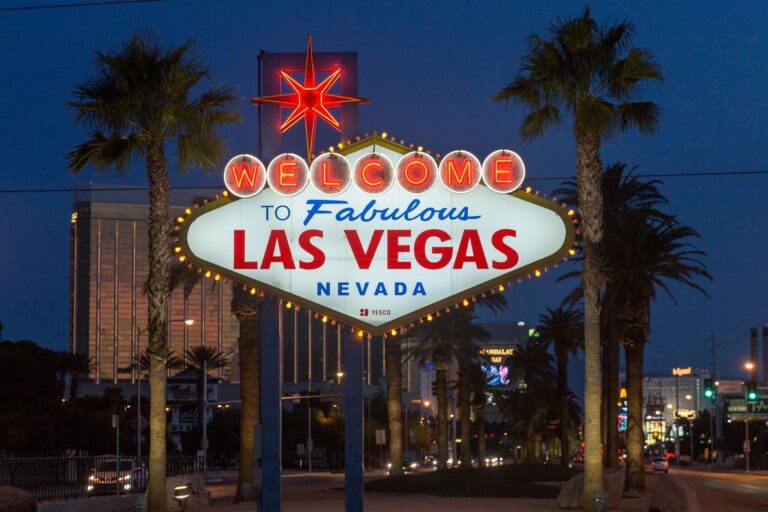Las Vegas: From Desert Outpost to Global Gambling Powerhouse
How Las Vegas Became the Gambling Capital of the World
Once a quiet railroad stop in the Nevada desert, Las Vegas has undergone a remarkable metamorphosis to become the foremost gambling hotspot worldwide, drawing millions annually. This evolution was sparked by critical legislative changes and entrepreneurial visionaries who capitalized on unique opportunities. The legalization of gambling in Nevada in 1931 was a turning point, designed to revive the economy during the Great Depression. Simultaneously, the nearby construction of the Hoover Dam attracted a surge of workers and investment, accelerating urban growth.By the mid-20th century, Las Vegas had cultivated a reputation for dazzling casinos that combined luxury, innovation, and high-stakes excitement, captivating visitors from across the nation.
Several key factors contributed to Las Vegas’ magnetic appeal:
- Progressive legal surroundings: Nevada’s permissive gambling laws created a secure and regulated atmosphere for gaming.
- Prime geographic positioning: Located along major transportation corridors, the city was easily reachable for travelers.
- Vibrant entertainment scene: The emergence of extravagant shows and star-studded performances broadened the city’s allure beyond gambling.
- Innovative resort architecture: Themed hotels and elaborate casino designs offered immersive experiences unmatched elsewhere.
These elements combined to foster a thriving economy centered on hospitality, entertainment, and gaming, firmly establishing Las Vegas as the ultimate destination for gamblers and tourists alike.
| Period | Milestone | Significance |
|---|---|---|
| 1931 | Nevada Legalizes Gambling | Laid the foundation for the gaming industry |
| 1935-1940 | Hoover Dam Project | Economic stimulus from workforce influx |
| 1950s | Emergence of Modern Casino Resorts | Boom in tourism and entertainment industries |
Influential Casinos and Pioneers Who Shaped Las Vegas’ Gambling Scene
Before the iconic neon glow illuminated the Strip, the gambling industry’s roots were planted by early casinos that served as both social hubs and entertainment venues. Initial establishments in places like Reno and Lake Tahoe introduced legalized betting and card games, attracting a loyal following. These venues pioneered a new leisure culture that blended risk, excitement, and sophistication, gradually normalizing gambling as a mainstream pastime.
Visionary individuals were instrumental in elevating this nascent industry to national prominence. Figures such as Bugsy Siegel and Meyer Lansky injected capital and reimagined casino culture by emphasizing opulence and entertainment diversity. Their innovations included the introduction of high-stakes poker rooms, luxurious hotel-casinos, and elaborate live performances, which broadened the market’s appeal. The synergy between entrepreneurial drive and evolving regulations during this period forged a distinctive gambling ecosystem that positioned Las Vegas as a global icon.
| Casino | Location | Noteworthy Contribution |
|---|---|---|
| El Cortez | Las Vegas | Pioneered full-service hotel-casino with bar |
| Cal-Neva Lodge | Lake Tahoe | Attracted celebrity clientele |
| Hotel Nevada | Reno | Expanded legalized gaming |
Economic and Societal Effects of Gambling on Las Vegas
The gambling boom has dramatically reshaped Las Vegas’ economy, transforming it from a small desert settlement into a dynamic metropolitan area with a multifaceted economic base. Casino-generated revenues have underpinned major infrastructure projects, created tens of thousands of jobs, and invigorated the hospitality and retail sectors. Employment opportunities now span hotel operations, entertainment production, food services, and more, illustrating the city’s economic diversification beyond gaming alone. Nevertheless, dependence on gambling income makes Las Vegas vulnerable to economic downturns, underscoring the need for continued diversification.
On the social front,the impact of gambling is nuanced. While many residents and tourists enjoy the vibrant entertainment and social atmosphere, the city faces challenges such as gambling addiction, crime, and housing affordability pressures. In response, local authorities and organizations have implemented programs promoting responsible gaming and public health education. Key social outcomes include:
- Increased cultural diversity fueled by international tourism
- Growth in charitable initiatives supported by casino profits
- Concerns over displacement and gentrification in urban neighborhoods
| Economic Metric | Las Vegas (2023) | U.S. Average |
|---|---|---|
| Unemployment Rate | 4.2% | 3.7% |
| Tourism Revenue | $12.5 Billion | N/A |
| Median Household Income | $63,800 | $68,700 |
Modern Approaches to Sustainable Expansion in the Gaming Industry
In today’s rapidly evolving gaming landscape, staying competitive requires embracing innovation and adaptability. Cutting-edge technologies like virtual reality (VR), augmented reality (AR), and blockchain are revolutionizing player engagement by offering immersive and transparent experiences. Additionally, cultivating a strong community through interactive features, multiplayer tournaments, and loyalty programs enhances customer retention and organic growth. Diversifying game offerings and platforms also helps mitigate risks tied to shifting market trends and player preferences.
Equally crucial is the commitment to responsible gaming and transparency, which fosters trust and long-term viability. Implementing fair play mechanisms and educating players about odds and risks contribute to a safer and more ethical gaming environment. Below is an overview of key strategies employed by forward-thinking gaming companies:
- Technology Adoption: Integration of VR/AR,AI-driven customization,and blockchain for verifiable fairness
- Community Building: Hosting live events,multiplayer modes,and rewarding loyalty
- Market Expansion: Targeting mobile platforms,esports,and global audiences
- Responsible Gaming Initiatives: Tools for self-exclusion,clear communication of odds,and player education programs
| Strategy | Benefit | Example |
|---|---|---|
| VR Integration | Enhanced Immersion | Virtual Casino Platforms |
| Blockchain | Increased Transparency & Security | Provably Fair Gaming |
| Community Events | Stronger Loyalty & Engagement | Esports Competitions |
| Responsible Gaming | Enhanced Player Confidence | Self-Exclusion Features |
Summary: The Enduring Legacy of Las Vegas’ Gambling Evolution
The journey of Las Vegas from a humble desert settlement to the world’s gambling capital is a testament to the power of strategic legislation,visionary entrepreneurship,and shifting cultural perceptions.As chronicled by History.com,this change was a gradual process fueled by calculated risks and societal changes.Today, Las Vegas not only epitomizes entertainment and chance but also exemplifies how dynamic forces can redefine a city’s identity and global standing.




